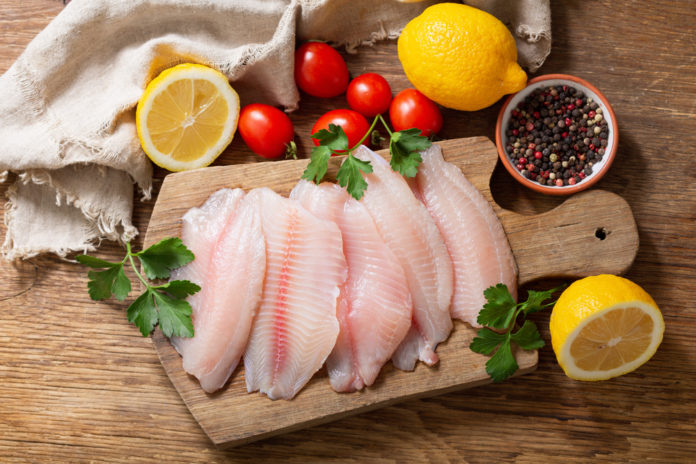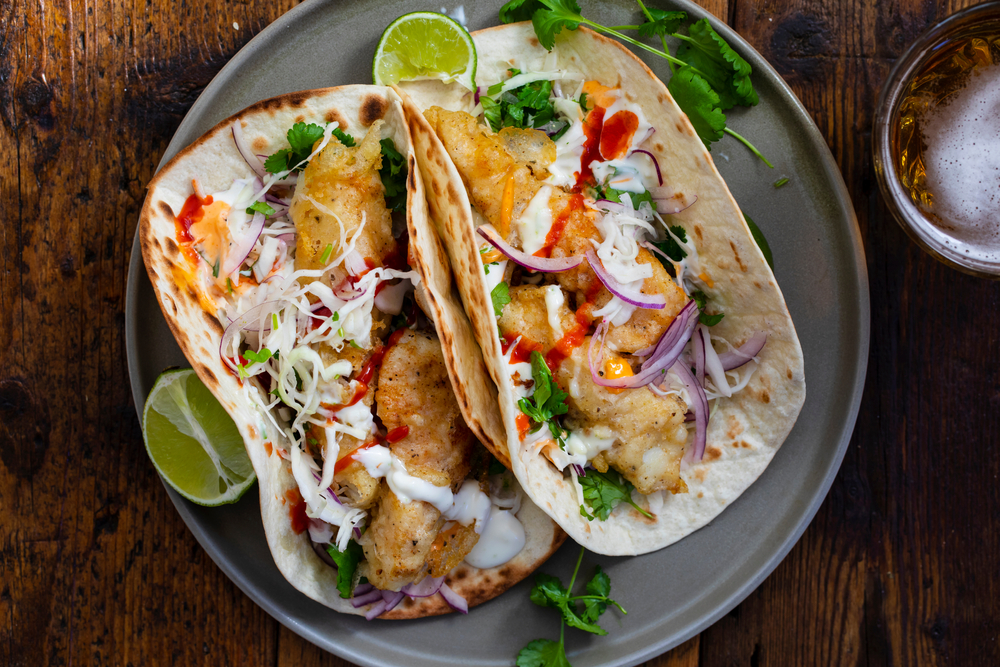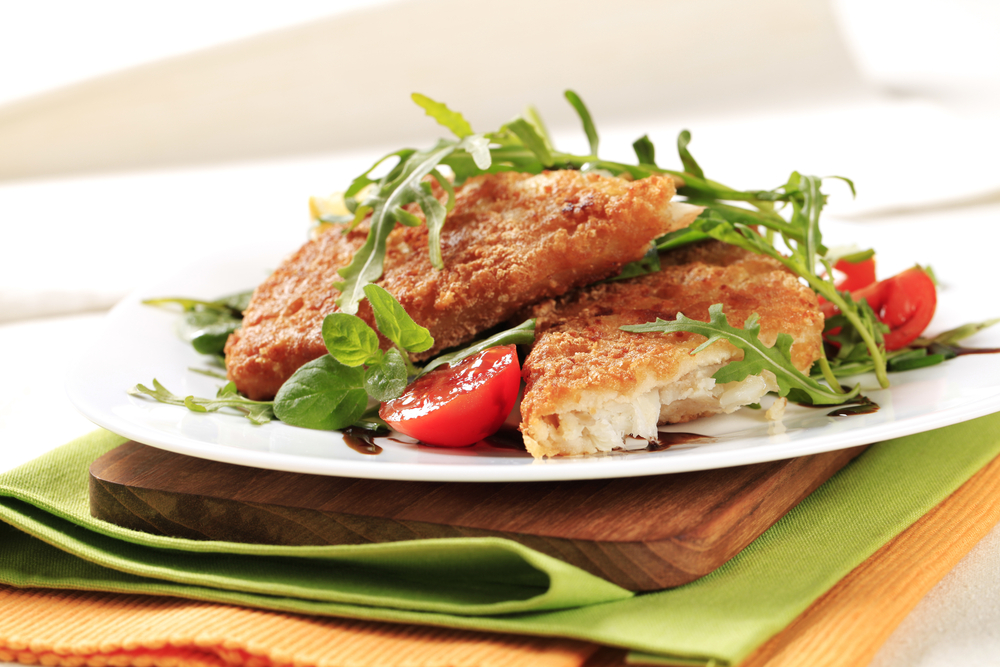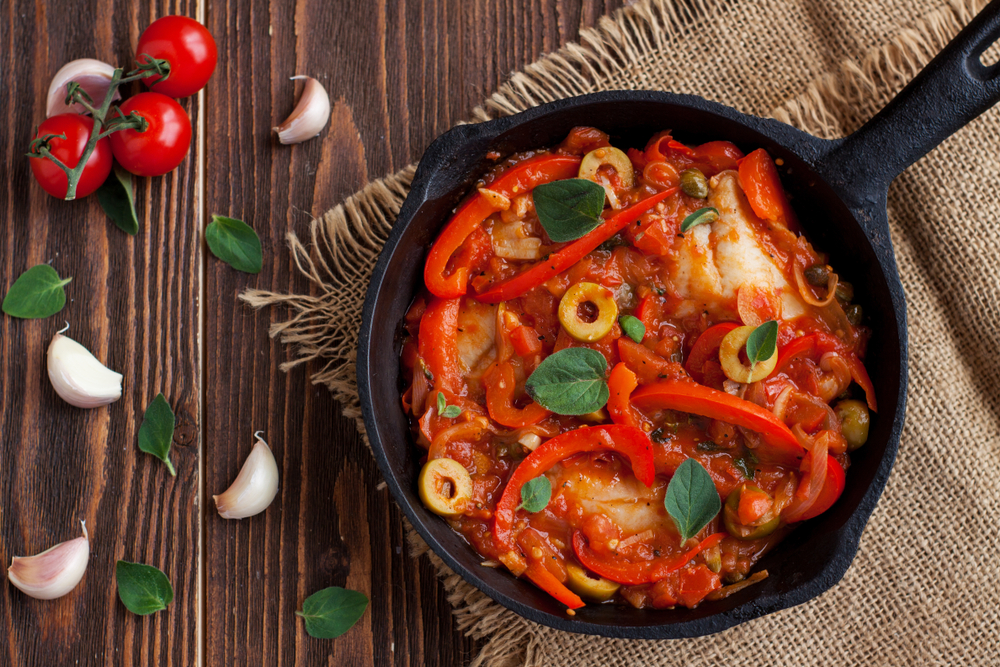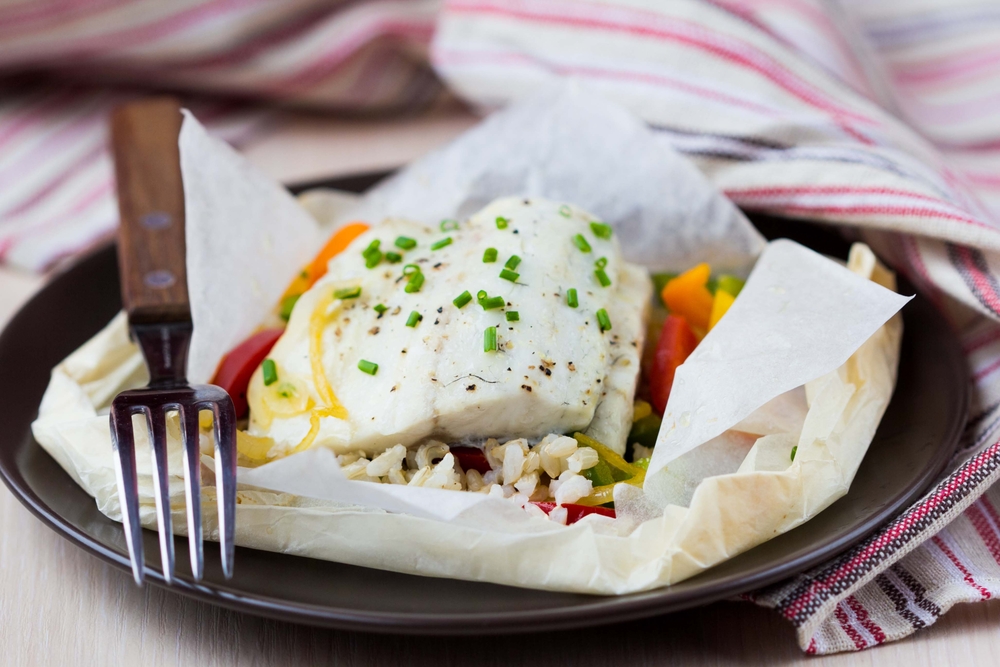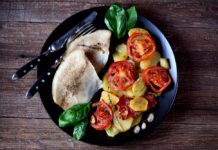No matter how boldly you enrich the recipe, some fish will always retain that characteristic “fishy” taste. Tuna and salmon have very distinct flavors and textures that limit the number of dishes they can be used in. However, experimenting with a white fish is a great way to serve a meal that won’t be overpowered by its main ingredient.
Tilapia is a popular option. Not only does it have high nutritious value, it’s a freshwater species. This means that it’s especially mild, giving it the delicious ability to absorb big flavors.
Versatility
There’s no shortage of ways to cook this great base protein. Tilapia can be fried, grilled, baked, steamed, broiled, poached, stewed and barbecued. Its flavor is subtle, which gives you the opportunity to enhance and experiment with many different ingredients.
One of the tastiest ways to cook this fish is to cover some fillets in oil or egg mix, then toss them in panko or breadcrumbs. You can slice strips and make fish tacos, bake whole fillets to go with greens of your choice or toss a spicy crumb mix on top of fried versions.
Try the recipe: Crispy Baked Tilapia from The Spruce Eats.
The classic English way to cook battered fish is making fish and chips. For a low fat alternative to the traditional cod or halibut, try using Tilapia. You can also batter your fish in different spice combos and bake them, serving with rice or salads.
Try the recipe: Beer Battered Tilapia Fish and Chips from Foodness Goodness.
Baking fish is one of the most common methods of cooking seafood. This opens up a wide spectrum of possibilities, including fish casseroles, tomato-based Mediterranean-inspired sauces, dill-lemon-garlic-butter seasoning and white wine marinara sauces. All of these flavors work particularly well in these classic recipes with a mild fish like Tilapia. But there’s no reason to stick to old standards—its low flavor profile makes it an outstanding collaborator with whatever spices or ingredients you have on hand.
Try the recipe: Bake Stuffed Fish Fillet from The Spruce Eats.
Cooking Methods
Tilapia only takes about 10 minutes to cook, making it a great option if you don’t have the hours or the interest to spend on meal preparation. If you use parchment or foil, add another three to five minutes for cooking time. Tilapia doesn’t usually need to be turned while cooking, unless you are looking to crisp up both sides while frying. Remember to oil your grill before throwing on some fillets to prevent sticking and the fish from breaking apart.
Of course, one of the greatest culinary inventions of this century is the air fryer. They’re conveniently sized, prepare food quickly and efficiently and produce food that is substantially lower in fat. This makes it a great method to employ when cooking Tilapia—add in a couple of flavor-enhancing ingredients like garlic and herbs, and you’re dining on restaurant quality white fish in just 10 minutes.
Try the recipe: Air Fryer Tilapia With Herbs and Garlic from Finding Zest.
If you’d like to try cooking a whole fish, go to your local fishmongers and ask them to pick the best size for your dish. Sometimes they can process the fish on site. But for the adventurer who would rather perform all aspects of the preparation themselves, make sure you have a sharp knife and proper tools, like a descaler. White fish like Tilapia are delicious when they are stuffed with herbs and lemon and baked. When it’s ready, it should be fork-tender and white, not translucent.
Nutrition
If its versatility alone isn’t enough to get you onboard, the nutritious qualities should guarantee your allegiance:
- Tilapia fillets have between 150-230 calories, depending on how they are cooked.
- It is a great source of protein: a three-ounce serving of broiled Tilapia has about 21 grams of protein.
- They are rich in vitamin B12, which is important for the development of red blood cells.
- Tilapia contains other important nutrients and minerals like potassium and calcium, and boasts a healthy dose of omega-3 fatty acids.
The only limitation in cooking fish is your imagination. There are many paths you can take in preparation and augmentation to end up with a wholesome, nutrient-dense meal. So if you’re looking for a low-flavor profile fish, but one with a high health benefit and a low environmental footprint, try using the Swiss Army knife of the fish world—Tilapia.
Trying to find a recipe that doesn’t taste like fish? Learn new and unique ways to cook meals that’ll win over even the harshest of critics.
Photo Credits:Nitr/Shutterstock Inc., Magdanatka/Shutterstock Inc., Tobik/Shutterstock Inc., Iryna Pospikh/Shutterstock Inc, Lapina Maria/Shutterstock Inc.


